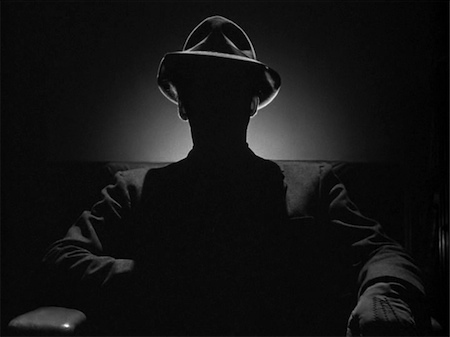I recently read an article claiming that readers who flip to the end of a thriller novel to check what will happen have more fun than those who endure the suspense to eventually learn the outcome. I found this difficult to believe. The study cited research done by the University of California at San Diego's Psychology Department, which gave subjects short stories by Agatha Christie, Ronald Dahl and John Updike.
To quote from the article:
Subjects significantly preferred the spoiled versions of ironic-twist stories, where, for example, it was revealed before reading that a condemned man's daring escape is all a fantasy before the noose snaps tight around his neck. The same held true for mysteries. Knowing ahead of time that Poirot will discover the apparent target of attempted murder is, in fact, the perpetrator not only didn't hurt enjoyment of the story, but actually improved it.
The article goes on to say:
Quite often when reading horror novels, I get so frightened I need to
check the hero/heroine is still alive at the end of the book, and I usually take a sneak peek at the end of romance reads just to make sure who is going to end up with whom.
The study's psychologists speculated:
Once you know how it turns out, it's cognitively easier--you're more comfortable processing the information -- and can focus on a deeper understanding of the story.
The article further states:
The reason spoilers don't matter is because plot is overrated, and plots are just excuses for great writing. The plot is (almost) irrelevant. The pleasure is in the writing.
I find this postulation absurd.
I agree beautiful writing can carry a novel a very long way. I've re-read Next, by James Hynes many times, and Philip Roth's American Pastoral more than once. These novels are so beautifully written that on the second or third read, I focused on the exquisite prose and appreciated the novels' finer points and ironic twists more than on my first encounter. Conversely, I found Donna Tarte's The Goldfinch, somewhat disappointing because the essential plotting elements were overwhelmed by the excessively written, albeit, gorgeous word-pictures.
And of course, we read and watch Shakespeare's plays and re-read Poe's stories not only for the beauty of their language and depth of thought, but because the stories (plots) continue to connect with intrinsic elements of the human experience.
As for mystery, suspense and thriller novels, viewing the plot as "(almost) irrelevant" seems an extraordinary stretch. Frankly, I find that conclusion preposterous.
These novels weave character and plot into a matrix meant to capture and hold our attention. If written well with a strong storyline, the reader "lives" the twists and turns in "real" time, as if dwelling within the story. Suspension of disbelief and not knowing the story's outcome make for tense yet delicious anticipation, and compel us to keep reading, even to the point of not want to be interrupted--let's say, for dinner.
That's why these books are called thrillers, page-turners, suspense novels or mysteries. It's the not knowing that provides super-charged propellant for the reader -- the eagerness to keep reading, the hunger for the reveal, the insatiable need to learn the consequences of the protagonist's character-driven mistakes or foibles.
Resisting the temptation to turn to the last page deepens the novel's pleasure when the denouement is finally revealed. We all know people who cannot delay gratification. Maybe some participants in the study were in that camp. But for the rest of us, spoilers are just that: Revelations that take the wind out of the sails, the bubbles out of champagne and the thrill out of the thriller.
Life brims with mystery, with enigmatic twists and infinite possibilities. Our lives teem with ambiguity. Who among us knows what waits around the next corner? For me, a thriller, suspense, or mystery novel reflects life with its uncertainty, apprehension and the tension of the unknown.
I definitely don't want to know the future. That would spoil everything.
Mark Rubinstein is the uthor of Mad Dog House, Love Gone Mad and The Foot Soldier

